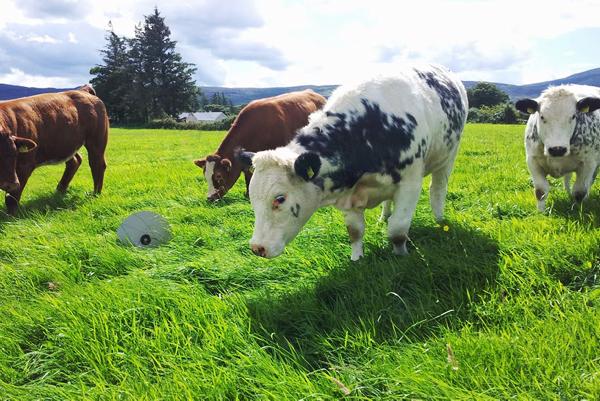Farming during the past week in Sligo has been a mixed bag. From the joy and the fun of the crowds visiting for the Fleadh Cheoil, to the wind and rain of the Irish summer. From the satisfaction of a newborn healthy calf to the realisation that there is little profit from last year’s newborns.
This week the oldest of the autumn 2013 born bulls were brought to the mart. Unfortunately, as predicted by many, a lack of both Northern and local farmer buyers has left little competition around the ring. Top quality continental weanlings are leaving the country but leaving little behind them in farmers pockets.
Mart prices
Based on what I have seen to date, quality bull weanlings are making €200 less per head compared to this time last year. The quality Limousin, Charolais and Belgian Blue bulls weighing 400 to 450 kgs are making just €2.00 – €2.20 per kg, with very few breaking through the €1,000 barrier.
This leaves me and other suckler farmers struggling to make a margin over the cost of keeping the cow, and many are considering their future as suckler farmers.My own thoughts turned to how to secure a better price for future cattle sales.
Producer groups
This led me to thinking about producer groups and on a similar, but larger scale, the Irish Dairy Board. We beef farmers are too reliant on our nearest market, and the terms and conditions imposed on us by the large supermarkets in that market.
What we need to do is take more control over the sales and marketing of our product. An “Irish Beef Board” made up of all the stakeholders in the industry, from farmers to meat processors to Government agencies. Profits shared all the way down the line. New technologies developed and new markets found which will increase the value of our beef.
Many reading this article will say “it cannot be done”, “it’s been tried before”, “the factories have too much power” or “it’s the Minister’s fault.” Indeed there is some merit to many of these statements.
Lessons from the past
However, I believe it can be done and there are numerous examples of this in the past. Companies and co-operatives, such as Kerry Group and the Irish Dairy Board are examples, where from small beginnings, grew to become world leaders in their market. If the crisis in the suckler industry is to be overcome we need new ideas and a new way of doing business.
Hopefully by the time the Fleadh returns to Sligo in 2015, the outlook for suckler farmers will have improved, and who knows we may even do a jig around the sales ring.






 This is a subscriber-only article
This is a subscriber-only article












SHARING OPTIONS: